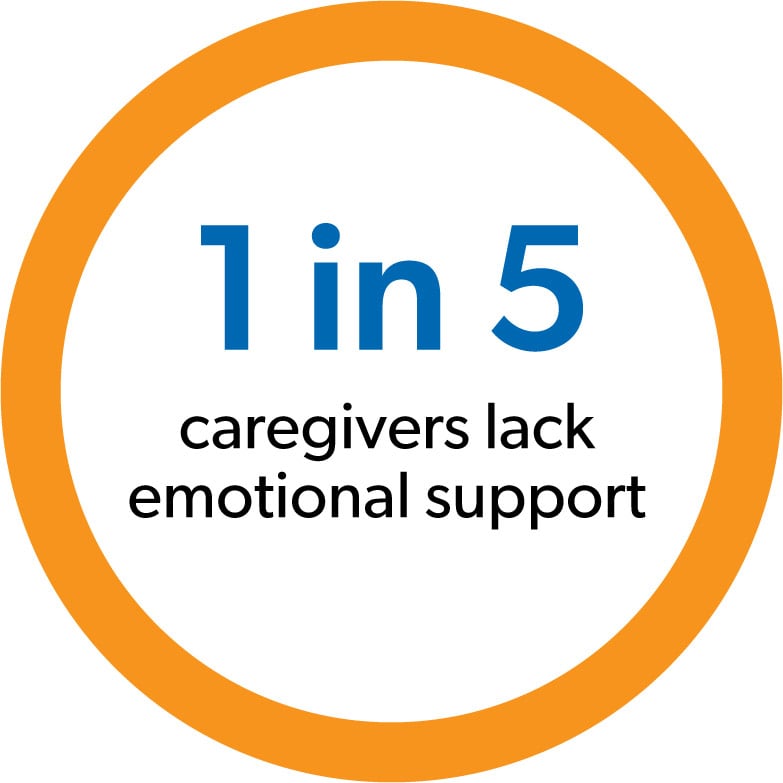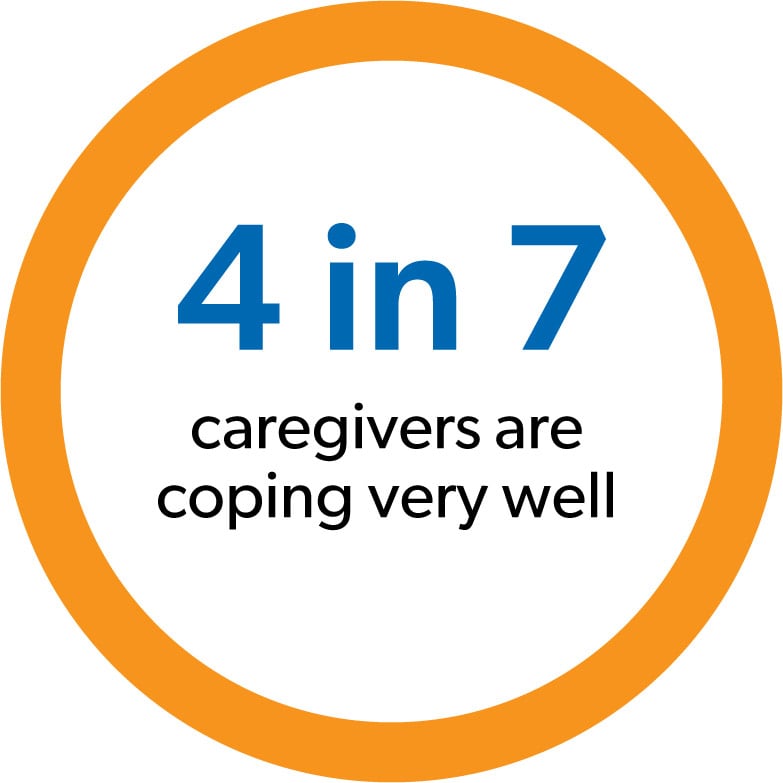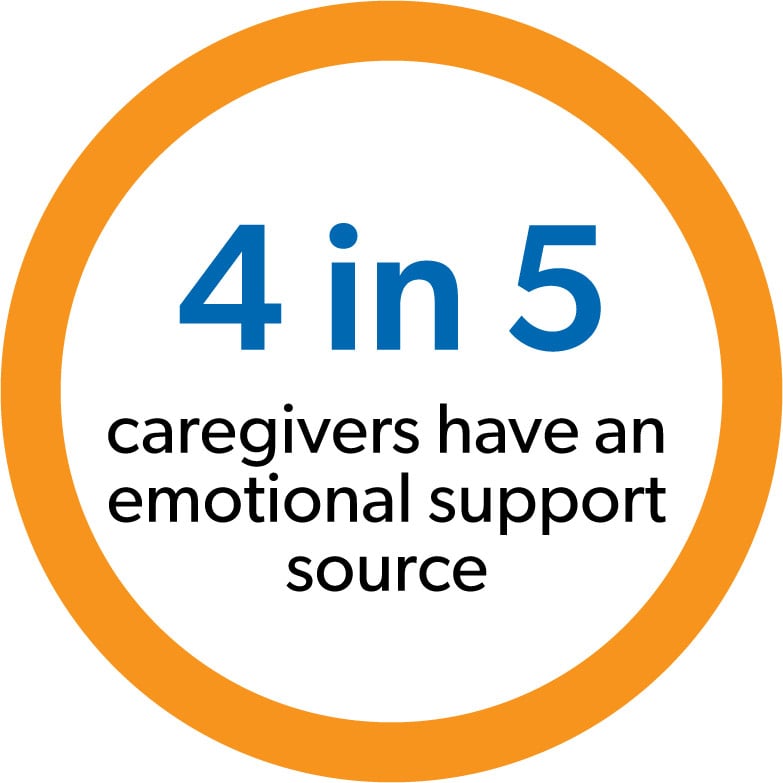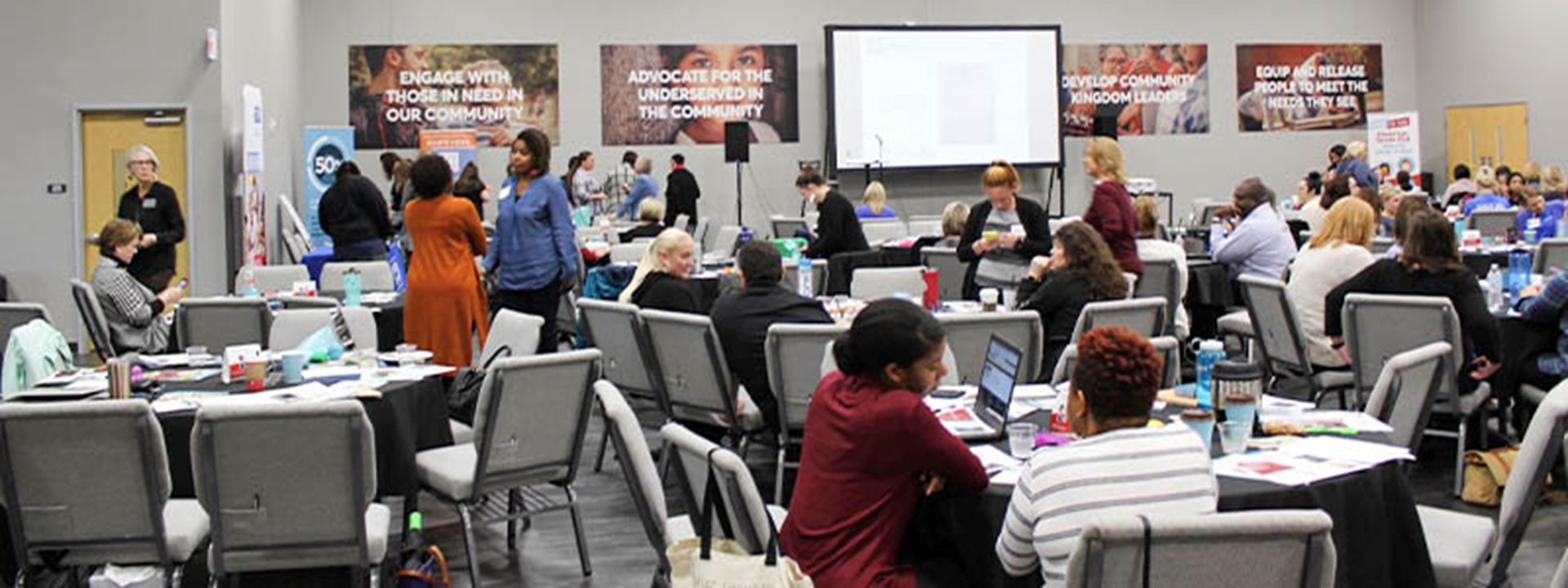Caregiver Support
In August 2024, the U.S. Surgeon General Advisory Report called attention to an urgent public health issue—parental mental health and well-being.1 The recent advisory emphasizes the significant stress parents face from financial instability, work-life balance, children’s health, technology and social media and lack of social support. Parents experience significantly higher stress than non-parents, with 33% reporting high levels of stress in the past month and 48% of parents say their stress is completely overwhelming (compared to 20% and 26%, respectively).1 Adverse childhood experiences, or ACEs, are traumatic events that occur during childhood that can have lasting mental and physical health effects into adulthood.2 Despite these challenges, families can build resiliency through protective factors such as strong relationships, social support, and safe, nurturing environments.3
Community insights



Approximately 57% of children (about 668,900) have caregivers in the eight-county service area – Collin, Denton, Grayson, Hood, Johnson, Parker, Tarrant and Wise counties reporting they are coping very well and 39% (about 455,600) are coping somewhat well with day-to-day demands of raising children— aligning with Texas and national estimates.2 Additionally, a majority of children have caregivers (81%) who report having a source of emotional support with parenting or raising children, positively exceeding Texas (72%) and national (76%) estimates.3,4
The ability to view parent coping and emotional support trends across community needs assessment years provides an additional layer of understanding to what is changing in the community. Since the 2021 Community Health Needs Assessment (CHNA), two trends worth emphasizing are (1) a slight increase in caregivers reporting that they are coping very well with parenting demands (from 54% to 57%), and (2) a continued decrease in caregivers reporting they have source of emotional support with parenting (from 86% to 81%).3 View the county-level snapshot to learn more about adverse childhood experiences (ACEs) and caregiver concerns in our eight-county service area.
Our focus area and key efforts
Parenting and family support often benefit from community collaboration opportunities, where community partners can create a supportive space and network for families. Everyone hears the saying that raising children takes a village – and while that holds true, feelings of isolation among parents and families continues to rise. By fostering strong communities ties and offering accessible programs, these collaborative efforts aim to ensure parents and families receive the necessary support to help them thrive in their role and to see lasting benefits for their children.

Build a Bridge™
Build a Bridge strengthens connections to healthcare and communities.

Parent Cafés
Parent Cafés allow parents to share experiences, connect, and learn proven parenting tips.

School Counselor Roundtable
Empowering schools to better address the health related needs of their students.
Contact us about our program
For questions or information on caregiver support, please email breanna.anderson@cookchildrens.org.
Raising children is sacred work. It should matter to all of us. And the health and
well-being of those who are caring for our children should matter to us as well.1
Access free resources
The Center for Community Health is committed to providing free education and access to our data.
References
1U.S. Department of Health and Human Services. Parents Under Pressure: The U.S. Surgeon General's Advisory on the Mental Health & Well-Being of Parents. 2024. Accessed September 2024. https://www.hhs.gov/sites/default/files/parents-under-pressure.pdf
2Centers for Disease Control and Prevention (CDC). About Adverse Childhood Experiences. Accessed September 2024. https://www.cdc.gov/aces/about/index.html
3Community Health Needs Assessment Report. (2024). Cook Children’s Health Care System. Fort Worth, Texas; or CookChildren’s CHNA 2024 at www.cookchildrens.org/chna (accessed September 2025). https://www.cookchildrenscommunity.org/data
4Child and Adolescent Health Measurement Initiative. Fast Facts: 2022 National Survey of Children’s Health. Data Resource Center for Child and Adolescent Health; 2023. Supported by the US Department of Health and Human Services, Health Resources and Services Administration, Maternal and Child Health Bureau. Accessed July 2024.
www.childhealthdata.org